Leaving No One Behind in the Citiverse
International Telecommunication Union and Universitat Autònoma de Barcelona
Session 284
The Global Initiative on Virtual Worlds and AI – Discovering the Citiverse, launched by ITU, Digital Dubai, and UNICC, is a global platform shaping policy innovation for safe, open, and interoperable AI-powered virtual worlds. It is also the avenue for developing normative frameworks addressing principles, enablers, and governance for applying metaverse solutions in cities. Cities, as hubs of human activity, are challenged by many issues, and when building digital cities it might be a great opportunity to avoid some already known and identified human interaction barriers.
ITU has created the Digital Inclusion and Accessibility track to meet the economic needs faced in a citiverse: Digital Inequality, the gap between those who have access and digital literacy and those who have not, leading to social unrest and economic instability, and Accessiblity, which is related to the many digital barriers to access any service or product offered in the city.
The session will discuss -from a top down approach- the challenges, opportunities, and impact we face when designing a citiverse for all citizens, leaving no one behind. From planing, standardisation to one example from Tampere (Finland) will offer a concrete case on how they are looking at digital inclusion.
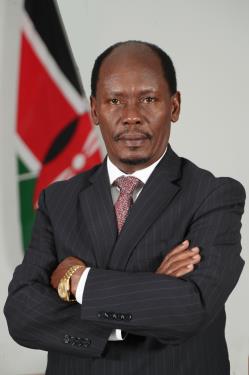

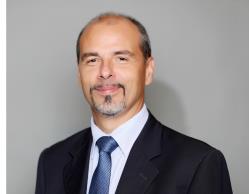

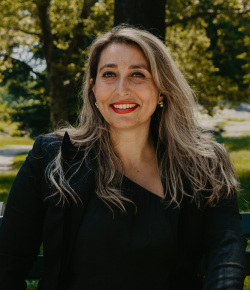
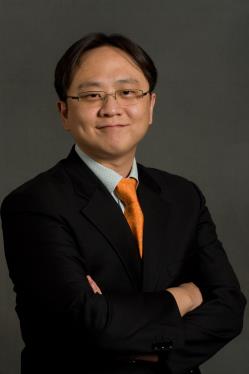
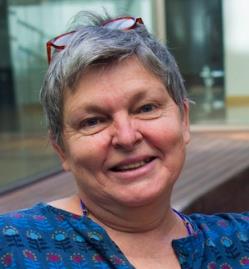
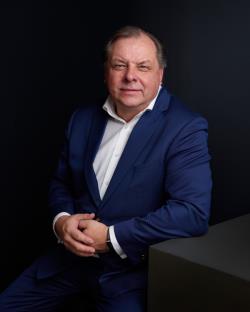

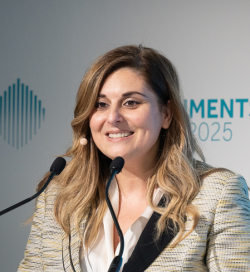
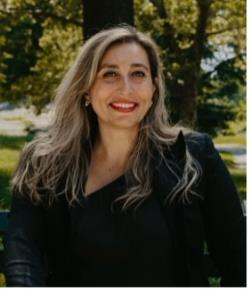
-
 C1. The role of governments and all stakeholders in the promotion of ICTs for development
C1. The role of governments and all stakeholders in the promotion of ICTs for development
-
 C2. Information and communication infrastructure
C2. Information and communication infrastructure
-
 C3. Access to information and knowledge
C3. Access to information and knowledge
-
 C4. Capacity building
C4. Capacity building
-
 C7. ICT applications: benefits in all aspects of life — E-government
C7. ICT applications: benefits in all aspects of life — E-government
-
 C7. ICT applications: benefits in all aspects of life — E-science
C7. ICT applications: benefits in all aspects of life — E-science
-
 C8. Cultural diversity and identity, linguistic diversity and local content
C8. Cultural diversity and identity, linguistic diversity and local content
-
 C10. Ethical dimensions of the Information Society
C10. Ethical dimensions of the Information Society
The Global Initiative on Virtual Worlds and AI – Discovering the Citiverse is closely related to the World Summit on the Information Society (WSIS) Action Lines, as both aim to build a people-centered, inclusive, and development-oriented information and knowledge society. The Citiverse concept, which integrates physical urban environments with virtual worlds, leverages digital technologies to enhance urban living and address various challenges, directly aligning with several WSIS Action Lines.
Here's how Citiverse for All relates to specific WSIS Action Lines:
C1: The role of public governance authorities and all stakeholders in the promotion of ICTs for development: CityVerse emphasizes a collaborative approach involving citizens, communities, and city officials in decision-making processes through virtual interactions. This aligns with the WSIS principle of multi-stakeholder partnerships and active public participation in shaping the information society. The initiative also focuses on governance frameworks that prioritize public benefit.
C2: Information and communication infrastructure: Citiverse relies on robust digital infrastructure, including high-speed internet, digital twins, AI, and augmented/virtual reality (AR/VR) technologies, to function effectively. This directly addresses the WSIS Action Line concerning the development of an essential foundation for an inclusive information society.
C3: Access to information and knowledge: Citiverse aims to improve access to public services and information through virtual platforms, allowing citizens to explore urban projects, participate in virtual town halls, and access administrative tasks. This directly contributes to the WSIS goal of universal access to information and knowledge.
C4: Capacity building: For Citiverse to be truly inclusive, citizens need the necessary skills to navigate and benefit from these virtual environments. The initiative's focus on bridging the digital divide and ensuring familiarity across all demographics aligns with the WSIS Action Line on capacity building, which emphasizes empowering everyone with digital literacy.
C7: ICT Applications: benefits in all aspects of life (E-government, E-business, E-learning, E-health, E-environment, E-agriculture, E-science): Citiverse is essentially a comprehensive application of ICTs for urban development. It encompasses various "e-applications" by:
E-government: Enabling virtual services and citizen participation in urban planning.
E-environment: Using AI and digital twins to reduce congestion, improve air quality, and foster sustainability.
E-health: Potentially integrating health-related services and information within the virtual city environment.
C8: Cultural diversity and identity, linguistic diversity and local content: While not explicitly stated as a primary focus, the "Citiverse for All" initiative implicitly supports cultural diversity by promoting inclusive design and representation within virtual worlds, aiming to cater to different needs and preferences. This aligns with the WSIS objective of preserving and promoting cultural and linguistic diversity in the digital realm.
C10: Ethical dimensions of the Information Society: The discussions around Citiverse often highlight the importance of designing these virtual worlds with accessibility, inclusion, and ethical considerations in mind from the start. This directly relates to the WSIS Action Line on ethical dimensions, which aims to ensure the responsible and human-centered development and deployment of digital technologies like AI and virtual worlds. In essence, Citiverse for All can be seen as a contemporary and innovative approach to implementing the core principles and objectives of the WSIS Action Lines within the context of urban development, utilizing cutting-edge technologies to create more inclusive, sustainable, and people-centred cities in the digital age.
-
 Goal 1: End poverty in all its forms everywhere
Goal 1: End poverty in all its forms everywhere
-
 Goal 3: Ensure healthy lives and promote well-being for all
Goal 3: Ensure healthy lives and promote well-being for all
-
 Goal 4: Ensure inclusive and equitable quality education and promote lifelong learning opportunities for all
Goal 4: Ensure inclusive and equitable quality education and promote lifelong learning opportunities for all
-
 Goal 7: Ensure access to affordable, reliable, sustainable and modern energy for all
Goal 7: Ensure access to affordable, reliable, sustainable and modern energy for all
-
 Goal 9: Build resilient infrastructure, promote sustainable industrialization and foster innovation
Goal 9: Build resilient infrastructure, promote sustainable industrialization and foster innovation
-
 Goal 11: Make cities inclusive, safe, resilient and sustainable
Goal 11: Make cities inclusive, safe, resilient and sustainable
-
 Goal 13: Take urgent action to combat climate change and its impacts
Goal 13: Take urgent action to combat climate change and its impacts
-
 Goal 17: Revitalize the global partnership for sustainable development
Goal 17: Revitalize the global partnership for sustainable development
The "Global Initiative on Virtual Worlds and AI is deeply intertwined with the Sustainable Development Process, particularly as outlined by the United Nations and its Sustainable Development Goals (SDGs). The core idea of Citiverse – integrating physical urban environments with virtual worlds using technologies like AI, digital twins, and AR/VR – is fundamentally aimed at addressing pressing global challenges and fostering sustainable urban development.
Here's how Global Initiative on Virtual Worlds and AI relates to the Sustainable Development Process and specific SDGs:
Overall Alignment with the 2030 Agenda for Sustainable Development: Citiverse is presented as a transformative approach to urban innovation that directly contributes to the vision of the Pact for the Future and the principles of the Global Digital Compact, emphasizing inclusive, sustainable, and equitable approaches to digital transformation. It aims to create cities that are inclusive, resilient, and sustainable hubs of progress.
SDG 11: Sustainable Cities and Communities: This is the most direct and prominent link. Citiverse directly addresses the targets of SDG 11 by aiming to:
Make cities and human settlements inclusive, safe, resilient, and sustainable. By leveraging digital twins, AI, and virtual environments, Citiverse can facilitate better urban planning, resource management, and disaster preparedness.
Enhance inclusive and sustainable urbanization and capacity for participatory, integrated, and sustainable human settlement planning and management. Citiverse allows for enhanced citizen participation in urban planning through interactive 3D models and simulations, enabling feedback and co-creation of solutions.
Reduce the adverse per capita environmental impact of cities, including by paying special attention to air quality and municipal and other waste management. Digital twins within Citiverse can help optimize energy use, integrate renewable energy sources, reduce emissions through smart transportation, and improve waste management.
Provide access to safe, affordable, accessible, and sustainable transport systems for all. By simulating and optimizing transportation networks, Citiverse can contribute to more efficient and sustainable mobility solutions.
SDG 9: Industry, Innovation, and Infrastructure: Citiverse heavily relies on and promotes advanced infrastructure and innovation.
It champions the development of digital public infrastructure, including AI, metaverse platforms, digital twins, and open-source solutions.
It encourages research and development in these areas to create more efficient and sustainable urban systems.
SDG 7: Affordable and Clean Energy: By optimizing energy use, integrating renewable energy sources, and reducing emissions through smart transportation and infrastructure planning, Citiverse can contribute to carbon neutrality and sustainable energy consumption within cities.
SDG 13: Climate Action: Citiverse's capabilities in simulating climate change impacts, planning for resilience, and reducing urban carbon footprints directly support climate action efforts. Predictive maintenance for infrastructure and the promotion of sustainable materials also contribute to mitigating climate change.
SDG 1: No Poverty: While not immediately obvious, by enabling more efficient and inclusive public services, and potentially fostering new economic opportunities within virtual urban spaces, Citiverse can indirectly contribute to poverty reduction. The UN Citiverse Challenge specifically highlights its alignment with SDG 1 by addressing how digital identity and financial systems within the Citiverse can empower marginalized individuals.
SDG 4: Quality Education and SDG 10: Reduced Inequalities: Citiverse can contribute to these goals by making information and public services more accessible, and by potentially offering new avenues for digital literacy and capacity building. The aim to ensure familiarity with CityVerse across all demographics, bridging generational and digital divides, is crucial for inclusivity.
SDG 17: Partnerships for the Goals: The Global Initiative on Virtual Worlds and AI – Discovering the Citiverse, particularly the UN Citiverse Challenge, emphasizes multi-stakeholder collaboration, bringing together governments, international organizations (like ITU, UNICC, WIPO), startups, and citizens to co-create solutions. This collaborative approach is a cornerstone of SDG 17, recognizing that achieving sustainable development requires strong global partnerships.
In essence, CityVerse for All is not just about adopting new technologies; it's about leveraging these technologies to address the complex, interconnected challenges of urbanization in a way that is environmentally sound, socially equitable, and economically viable, thereby accelerating progress towards the broader Sustainable Development Goals.
- Objective 2: Expand inclusion in and benefits from the digital economy for all
- Objective 5: Enhance international governance of artificial intelligence for the benefit of humanity